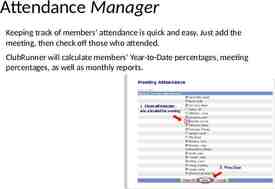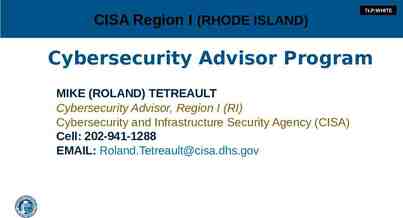Exploring the ICU Education Experience Across London During the COVID
20 Slides445.11 KB

Exploring the ICU Education Experience Across London During the COVID Pandemic: Survey Results Doctors redeployed to ICU London Transformation and Learning Collaboration (LTLC) NHS England and NHS Improvement

Purpose of the London Transformation & Learning Collaborative (LTLC) We want to assist system working and move forward in a way that will support growth and optimise effectiveness. Work collaboratively Share best practice across organisations, systems and the region Enable colleagues to be more prepared to work in an expanded critical care as well as in the event of a second surge thereby improving staff experience Support each other in improving patient outcomes Providing training content and structure that can be delivered consistently and effectively 2

About the LTLC Programme: Purpose To increase the supply and resilience of staffing for critical care across London To develop a London plan that seeks to ensure that the NHS workforce is equipped with the skills and capabilities to manage existing demand, potential future spikes in demand as a result of Covid-19 and longer-term permanent expansion of critical care capacity in London. Primary outcome To cross-skill staff to support the London region to expand ICU capacity with the potential to open more critical care beds in surge Scope Develop clinical education transformation capability across the NHS in London: Develop transformation programmes which align to patient need, service model, and workforce models. Co-ordinate design and delivery of training to support London’s response to Covid-19: Establish innovative education delivery models that will support the development of an agile workforce that has the robust capability to deal with a second surge. 3

Survey Aims and Research Questions Aim: Explore education experiences of those who worked in ICUs across London during the COVID pandemic; both those who worked in ICU and those who were redeployed to ICU Research Questions: 1 ICU staff delivering education Demographics Education successes Education challenges Useful professional groups Support needed for a second surge Would collaborating with other ICUs help? Training resources and IT systems used 179 responses 2 ICU staff receiving education Demographics Useful elements of training Elements of preparation that were missing What would you do differently? 138 responses Total 933 responses 3 Non-ICU/Redeployed staff Useful elements of training Training that was missing Useful things learnt (how and from who) Steepest learning curve (how it was overcome) Training resources used What would you do differently? Advice to a colleague going to work in ICU 616 responses 4

Survey Results: Reponses from Doctors that were redeployed to ICU during the pandemic Total 78 Responses *Resources that were suggested in the survey responses are being collated separately and are not discussed in this summary 5

Redeployed Doctors: Area and Location Normal Area of Work Surgery Medicine Anaesthetics/ theatres Rotating Paediatrics Sexual Health Obstetrics and gynaecology Cardiology Radiology General Practioner TOTAL No. 25 16 13 10 5 5 4 3 2 2 78 Level Consultant Registrar SHO F1 No 14 29 31 4 Response Rates by Area of London North Central South West South East North West North East 6

Q1: During the initial COVID response what was the most useful and important elements of training you received?* ICU Skills and Knowledge General Ventilation 18 Introduction/cross-skilling course 18 Patient assessment in ITU 10 No training 9 PPE 10 Hands-on training in ICU 8 Proning 10 Online resources 8 Line insertion 7 Equipment 4 Simulation 4 Crib sheet/cheat sheets 3 Circulatory support 4 ICU medications 4 COVID knowledge 3 Documentation 2 *Topics mentioned only once are not included 7

Discussion Q1: During the initial COVID response what was the most useful and important elements of training you received? Many doctors said that they did not receive any formal training before redeployment “We “We did did not not receive receive any any formal formal training training prior prior to to starting starting however however we we were were directed directed to to some some online online modules modules that that covered covered generic generic ICU ICU principles principles which which was was helpful” helpful” Redeployed Redeployed doctor, doctor, SHO SHO Elements of training that were deemed most useful were: Ventilation, assessment of ICU patients, PPE, proning and learning procedures such as line insertion Cross-skilling or introductory ICU courses were deemed to be very useful, however many discussed the need for more hands-on training and shadowing within ICU A “cheat sheet” was mentioned several times from North West doctors as a useful resource for summarising key ICU information 8

Q2: What do you wish you had known more about / had more specific training before you worked in CC? ICU Skills and Knowledge Other Ventilation/airway management 32 Nothing 12 ICU Medications 8 Orientation to ward, role and team structure 10 Delirium 6 Equipment 4 Deteriorating Patients 6 Simulation Training 4 Renal Replacement therapy 5 Supporting others 4 Tracheostomy 4 Wellbeing 3 Procedures 3 Hands-on training 2 PPE 2 Communication 1 COVID knowledge 2 Proning and manual handling 2 End of life care 1 9

Discussion Q2: What do you wish you had known more about/ had more specific training before you worked in CC? Some doctors said that there was no additional training that was needed however they were commonly doctors who had previous ICU experience Elements of training felt to be lacking were: Ventilation, ICU drugs (including inotropes and sedative drugs), delirium, deteriorating patients and renal replacement therapy There was a lack of local induction and orientation to the ward, role and team Orientation to equipment was a common theme and was felt to be lacking - particularly ventilators Several doctors commented on how they had wished they were able to support the other staff better “Basic “Basic ICU ICU nursing nursing taskstasks- changing changing syringe syringe drivers, drivers, mixing mixing drugs, drugs, observations observations etc. etc. The The nurses nurses were were overwhelmed overwhelmed itit would would have have been been nice nice to to gave gave been been in in aa better better position position to to support support them” them” Redeployed Redeployed doctor, doctor, NEL NEL “I “I would would have have liked liked aa proper proper induction. induction. We We weren’t weren’t inducted inducted meaning meaning we we didn’t didn’t know know where where crash crash trolleys trolleys were, were, what what systems systems we we needed needed to to use” use” Redeployed Redeployed doctor, doctor, NWL NWL “More “More details details on on the the role role and and what what was was involved. involved. Specific Specific training training on on some some of of the the tasks tasks to to be be carried carried out out through through the the role” role” Redeployed Redeployed doctor, doctor, NWL NWL 10

Q3. What were the most useful things you learnt whilst looking after patients in CC?* Who did you learn this from and how? Useful Things Learnt Ventilation Practical Skills Circulatory support Patient assessment Deteriorating patient Communication/teamwork Proning ICU drugs Sedation COVID knowledge Procedures Ceilings of care/ End of life care From Who and How 23 12 11 10 10 9 8 7 5 5 5 4 Doctors Nurses Hands-on experience Self-directed Ward round Team generally Simulation 38 23 22 13 10 9 3 Grand round Educators Operating department practitioner Physiotherapist 1 1 1 1 *Top 12 responses only 11

Discussion Q3: What were the most useful things you learnt whilst looking after patient in CC? Who did you learn this from and how? It was felt that most learning occurred within ICU as opposed to during training Ventilation, practical ICU skills (such as drawing up infusions, giving medications, doing observations) and patient assessment were felt to be the most useful skills learnt on ICU Training on managing the deteriorating patient was felt to be lacking in formal training but was the most useful thing leant on ICU Non-technical skills including communication (between colleagues as well as with patients and families) and teamwork were also useful skills learned within ICU Other doctors and nursing staff were the greatest source on knowledge for redeployed doctors, with many again highlighting the importance of hands-on experience “Practical “Practical skills skills -- taking taking blood blood from from central/arterial central/arterial lines, lines, setting setting up up infusions, infusions, drawing drawing up up drugs drugs How How to to fill fill out out the the monitoring monitoring charts charts How How to to interpret interpret the the values values on on aa ventilator ventilator and and make make basic basic adjustments adjustments ifif required ” required ” Redeployed Redeployed doctor, doctor, SWL SWL 12

Q4a: What were the steepest learning curves you faced on redeployment? Skills and Knowledge Equipment including ventilators Deteriorating patient PPE and infection control ICU medications ICU specific medical knowledge COVID knowledge Procedures (including line insertion) Other 20 12 11 7 5 4 4 Caring for ICU patients New Environment or role Physical stress Psychological Stress Lack of support Workload Communication with families Working with non-ICU trained staff Lack of training No learning curve 16 12 8 7 7 6 5 4 4 1 13

Q4b: How did you overcome them? Responses Colleagues Internet including apps Books/Literature None Intranet Self-care Online Courses Counselling Reflection/Debrief No. 49 36 14 6 5 3 3 2 1 14

Discussion Q4: What were the steepest learning curves you faced on redeployment? How did you overcome them? Using ICU equipment including ventilators/ventilation was a common response, along with discussion around the general challenges of caring for ICU patients Dealing with acutely unwell, deteriorating patients was a steep learning curve commonly discussed Coping with psychological and physical stress was a steep learning curve for many and there were comments about the lack of support that was given The lack of knowledge about the new working environment and what was expected in the new role was commonly discussed Colleagues were crucial to managing the steep learning curves Additional training that people undertook was often online “How “How to to communicate communicate with with relatives relatives of of patients patients on on ITU, ITU, balancing balancing the the hope hope that that people people would would recover recover with with the the expectation expectation that that they they were were likely likely to to die. die. The The emotional emotional toll toll of of such such overwhelming overwhelming numbers numbers of of very very sick sick patients” patients” Redeployed Redeployed doctor doctor 15

Q5: What would you do differently if you had to go back to your initial redeployment? Responses Nothing More self-directed learning Be more assertive/contribute more Have more training Better self-care Orientation to ICU Supernumerary/Shadowing in ICU Support others more Be more positive No. 19 13 12 11 7 6 4 3 1 “Ideally “Ideally more more training/reading training/reading up up prior prior to to the the role role being being carried carried out” out” Redeployed Redeployed doctor, doctor, SEL SEL Many said they would not do anything differently and they tended to be those with ICU experience Many said that would undertake more self-directed learning before and after redeployment Some doctors would be more confident and assertive in their abilities Looking after themselves as well as supporting others more was a common response “Learn “Learn more more nursing nursing tasks tasks to to support support nurses nurses with with drugs” drugs” Redeployed Redeployed doctor, doctor, NWL NWL 16

Q6: What is the one piece of advice you would give a colleague going to work on CC? Responses Ask questions/ ask for help Improve knowledge Better psychological care Support ICU nursing staff more Better physical care Improve practical skills Consider basics No. 20 15 12 10 8 7 7 Not being afraid to ask questions or ask for help was the most common advice Improving knowledge before and during redeployment was commonly advised Looking after yourself psychologically and physically was mentioned and included drinking plenty of water and good sleep hygiene Having the skills to support colleagues better was a frequent response “To “To ensure ensure you you read read ahead ahead and and brush brush up up on on interpretation interpretation of of gasses, gasses, ventilation ventilation and and tracheostomies” tracheostomies” Redeployed Redeployed doctor, doctor, NWL NWL “The “The ICU ICU nurses nurses know know everything! everything! Ask Ask for for help” help” Redeployed Redeployed doctor, doctor, NEL NEL 17

Conclusions: There was a lack of training prior to redeployment. The most important elements missing were: Ventilation, ICU drugs (including inotropes and sedative drugs), delirium, deteriorating patients and renal replacement therapy It was commonly mentioned that hands-on training and shadowing/supernumerary days within ICU prior to redeployment would have been useful Not being able to support nursing staff with practical skills such as drawing up and administering drugs was a common theme throughout There was a lack of local induction and orientation to the ward and role prior to redeployment Equipment training was lacking particularly on ventilators Coping with psychological and physical stress as well as the emotional challenges of end of life care were steep learning curves 18

The LTLC: Education Workstream The LTLC are using these survey results (as well as focus groups) to inform the following: Support role definition Share Education Content Create a Skills Passport Publish a skills matrix mapped to existing competency frameworks for all critical care roles Curate existing high quality education content into modules mapped to the skills matrix Create electronic competency passports, interfacing with IT systems, e-learning and face to face education This can be used locally to inform learning objectives and avoid “over-teaching” Specific areas include: Explore compatibility with erostering platforms Leadership training Teamworking Wellbeing ICU equipment 19

Close






